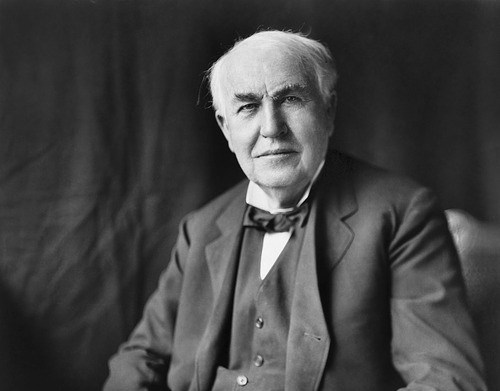| |
|

(Thomas Alva Edison February 11, 1847 – October 18, 1931)
About Electronics and Computer Engineering Department
The Department of Electronics and Computer Engineering was established in the academic year 2008 with the goal of delivering high-quality technical education in emerging fields of electronics and computing technologies. The department aims to develop students’ core technical knowledge, problem-solving skills, and interdisciplinary competence to prepare them for the rapidly evolving industry. The department offers a Diploma in Electronics and Computer Engineering, structured according to the Maharashtra State Board of Technical Education, Mumbai (MSBTE) curriculum. The teaching-learning process is technology-driven, incorporating smart classrooms, simulation software, and hands-on practical training to strengthen conceptual understanding. To enhance practical exposure, students frequently participate in industrial visits, technical workshops, and expert talks by industry professionals.An annual technical fest, INNOVATE, is conducted to foster creativity, research-oriented thinking, and teamwork among students. Additionally, the department publishes a technical journal to encourage students to contribute innovative ideas and improve their communication skills.The Electronics and Computer Students Association (ECSA) actively works towards organizing technical events, hackathons, and community-driven projects to keep students engaged with the latest technological advancements. Through this platform, students collaborate, learn, and contribute to solving real-world challenges.The department holds NBA accreditation, reinforcing its commitment to academic excellence and continuous improvement. It operates state-of-the-art laboratories equipped with industry-standard tools and technologies, facilitating research and consultancy services.
The department also generates revenue through testing and development projects, aligning with industry requirements.With a strong emphasis on innovation, practical learning, and professional development, the Electronics and Computer Engineering Department strives to produce highly skilled technocrats capable of contributing to the advancement of electronics, computing, and automation technologies. Electronics & Computer Engineering is a three-year diploma course that deals with analog transmission, digital transmission, reception of video, voice, and data, basic electronics, solid-state devices, microprocessors, digital and analog communication, analog integrated circuits, satellite communication, microwave engineering, antennas, and wave progression.
Broad Disciplines of Electronics Engineering
- Analog Electronics – Study of continuous signals, amplifiers, filters, and analog circuits.
- Digital Electronics – Logic gates, digital circuits, microprocessors, and microcontrollers.
- Power Electronics – Design of converters, inverters, motor drives, and power management systems.
- Embedded Systems – Microcontrollers, firmware development, and real-time operating systems (RTOS).
- Signal Processing – Audio, image, and video processing using techniques like FFT and filtering.
Broad Disciplines of Computer Engineering
- Computer Architecture & Hardware – Design of CPUs, memory, and computer hardware systems.
- Software Engineering – Software development methodologies, design patterns, and software testing.
- Operating Systems – Kernel design, memory management, and process scheduling.
- Computer Networks & Security – Network protocols, cybersecurity, and cryptography.
Scope of Electronics and Computer Engineering
Today, in this Era of Modern Technology, electronic technologies like wireless communication, e-commerce, artificial intelligence/machine learning, robotics, Industry 4.0, and the Internet of Things are much in demand. In the coming future, there will be a huge demand for proficient engineers in industry to cope with this demand in technology. An electronic engineer can find jobs in consumer electronics manufacturing organizations, IT industries, health care equipment manufacturing industries, mobile communication, Internet technologies, power electronics, and other industries like steel, petroleum, and chemical industries, directing control and testing production processes.
Career Prospects:
As an Electronics and Computer engineer, various opportunities are there.
An electronics engineer can get a job in the Central Government, State Governments and their sponsored corporations in public enterprises and private organizations like All India Radio, Indian Telephone Industries, MTNL, National Physical Laboratories, AIR, Civil Aviation Department, Co-ordination Department, National Physical Laboratory, Bharat Electronics Limited, Development Centers in various States, and research organizations like ISRO. Dealing in the manufacture, sales, and services of electronic consumer goods and appliances. Also in the information and broadcasting sectors are the railways, police, BSF, CRPF and defense-related organizations. Electronics engineers are also absorbed into software companies as software engineers. Electronics engineers also have opportunities in the entertainment transmission industry, research establishments, and defense. Or take up teaching as a professor of communications in educational institutes.
|
|